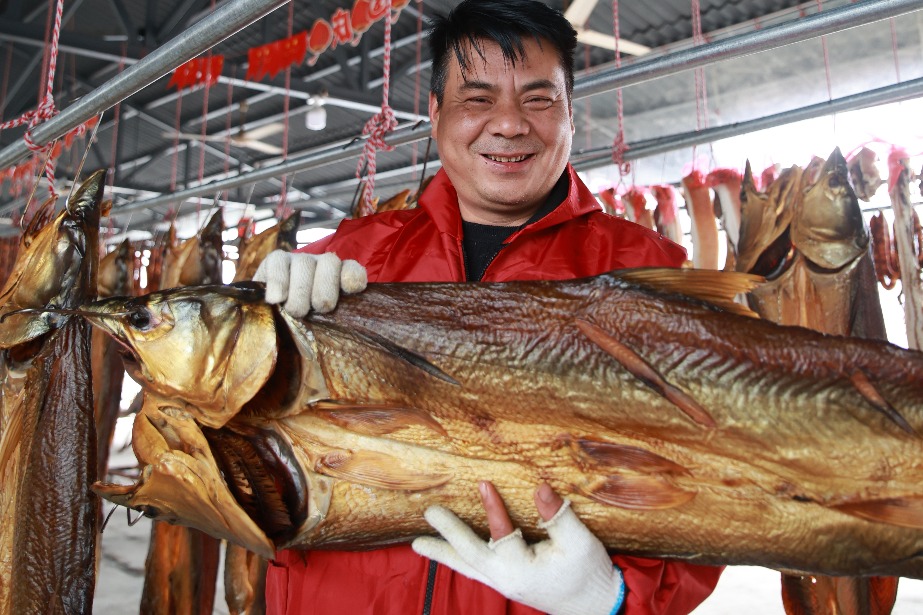Parasitic infection traced to eating centipedes

Chinese researchers have reported a dangerous food-borne parasite typically found in snails and other mollusks, which were detected in two patients in a Chinese hospital.
The researchers traced the parasites to the consumption of raw wild centipedes, according to a case report published on Monday in the American Journal of Tropical Medicine and Hygiene.
Researchers from the Southern Medical University and Zhujiang Hospital in Guangzhou, Guangdong province, said it's the first time the rat lungworm, named for its preference for the pulmonary arteries of rats, had been detected in centipedes.
"We don't typically hear of people eating raw centipedes, but apparently these two patients believed that raw centipedes would be good for their health," said Lu Lingli, a co-author of the report who works at the hospital.
Mild infections with rat lungworm may resolve on their own, but the parasite can penetrate the brain and spinal cord, which can lead to meningitis, an infection of the fluid around the brain, and, in rare instances, paralysis and death.
Lu said the two patients, a 78-year-old woman and her 46-year-old son, came from the countryside where a rumor had circulated that eating raw centipedes had potential health benefits.
Both people were cured with a 21-day course of the anti-parasitic drug albendazole and a two-week course of the steroid dexamethasone to address inflammation that arises as the parasites die.
The researchers purchased 20 centipedes from the agricultural market where the patients had acquired their centipedes. The immature, or larvae, form of rat lungworm was detected in seven of the centipedes.
Centipedes themselves are occasionally sold in Chinese agricultural markets or as traditional Chinese medicine due to their perceived medicinal properties.
Dried or crushed centipedes have been used for centuries in traditional Chinese medicine to treat a variety of ailments, including whooping cough, tetanus and cardiovascular disease, though usually in a dried or powdered form that does not transmit the parasite.
Now, extracts made from the centipede are being assessed for their potential to fight cancer and to serve as a potent pain killer. But raw wild centipedes are rarely consumed to treat ailments.
Xinhua
- China's 2026 Spring Festival travel rush to begin
- Knocking on the stone-framed door
- Shanghai Science and Technology Museum to reopen soon
- Shanghai celebrates Spring Festival with intl students
- Pegasus fondant artwork ushers in Year of the Horse in Shanghai
- China, Algeria expand space cooperation with new satellite launch




































